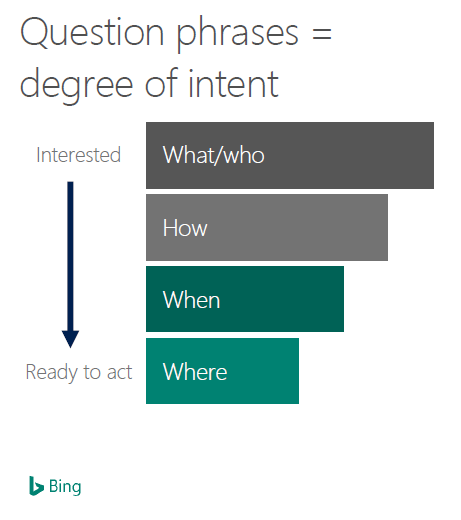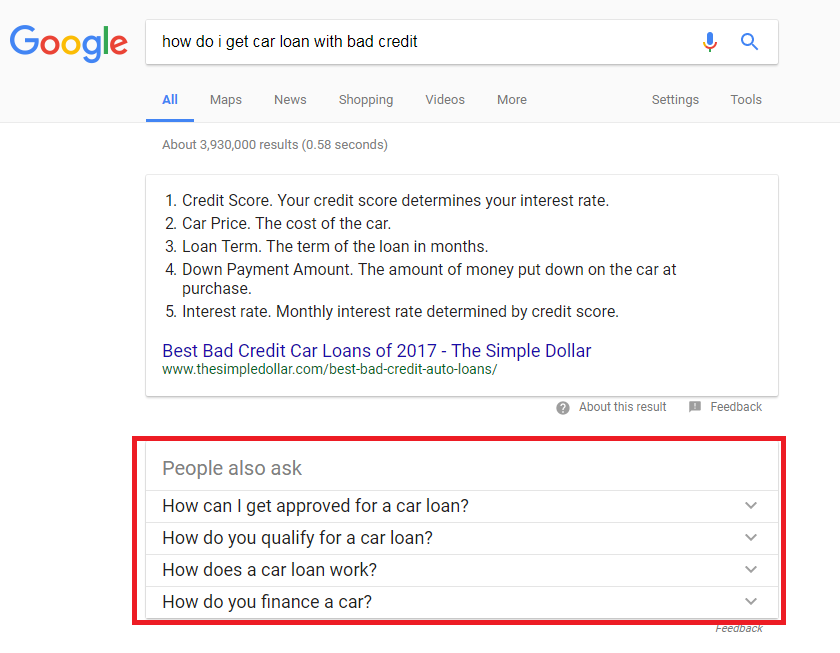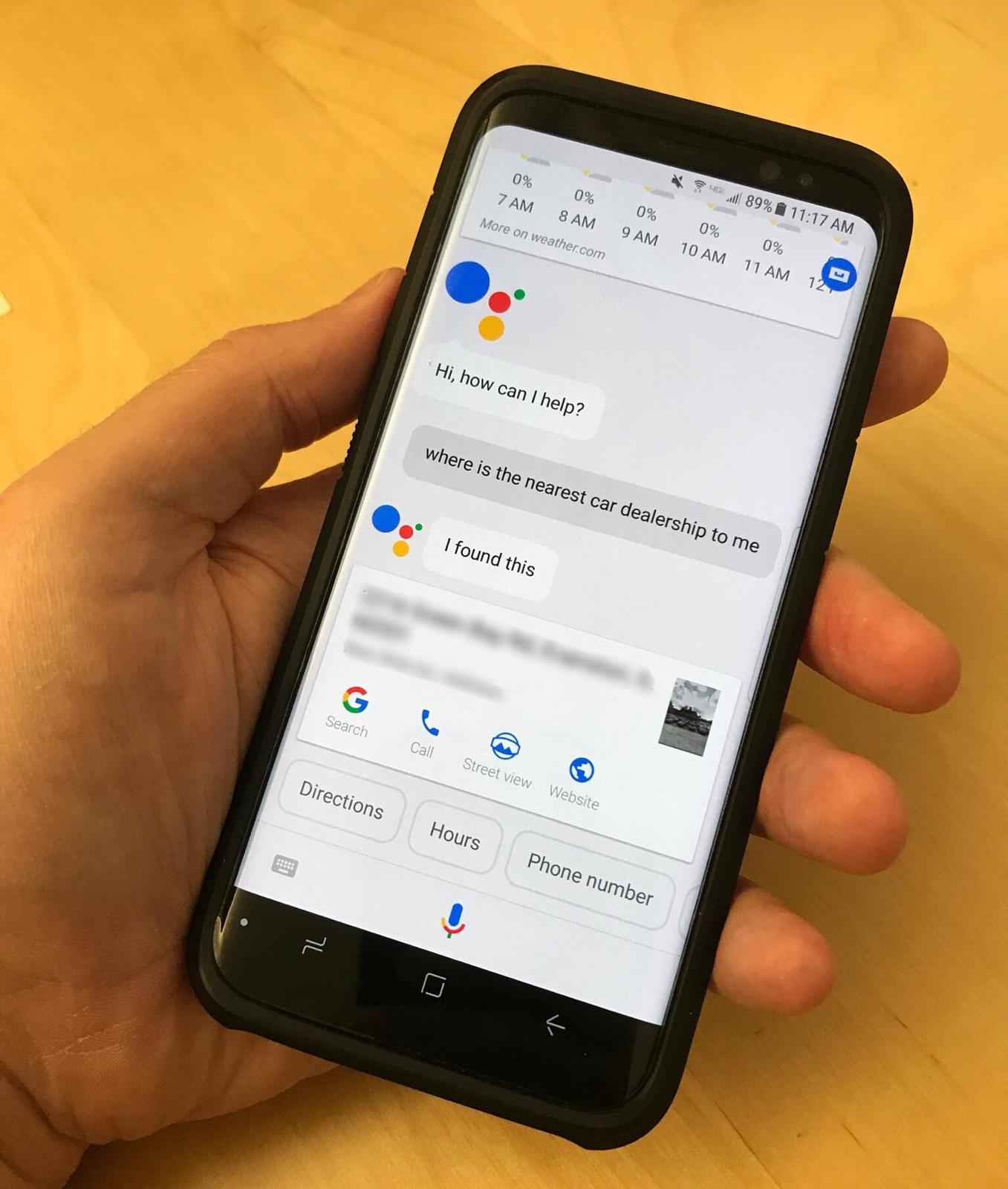It’s no secret that smartphones have shaken up digital marketing. With the introduction of mobile web browsing, action can be taken anytime, anywhere, so the purchase funnel is much smaller than it was 10 years ago. In the past few years, hands-free web browsing and action-oriented mobile queries have changed shoppers search habits, and altered how we must approach using keywords in both paid search and SEO.
Within automotive marketing, it’s even more critical to adjust strategy accordingly. Car shoppers on mobile are on average farther down in the purchase funnel. In fact, 44% of them plan to purchase a car in the next three months. With mobile search more conversational than ever before, it’s essential that dealerships understand how this affects digital marketing.
We broke conversational search down into three aspects that should influence your paid social and SEO campaigns:
- Voice search
Apple’s Siri, Microsoft’s Cortana, Amazon’s Alexa, Samsung’s Bixby and Google might be the world’s most popular artificial intelligence (A.I.). Smartphone users talk to these intelligent personal assistants like they are alive, and therefore mobile searches are looking a lot more like questions in a conversation between two humans.
Capturing voice searchers is valuable because voice is the most action-oriented search method. Usually used when people are on the move and ready to take action, these searches are three times more likely to be local-based than text searches.
What’s more, comScore predicts that 50 percent of all searches will be voice-generated by 2020. When you consider that this search method is being developed for desktop and other mobile apps (Apple’s computer operating system, Sierra, now features Siri and Facebook is currently working on developing its own AI-based assistant, M.), it’s clear that voice search is growing – and fast.
For SEO specifically, the increase in voice search changes who (or what) is physically looking at your content. Dealerships still need to create content, but it’s important to understand that a lot of users will ask their AI-driven digital assistants to look for an answer and report back to them.
This means that it’s even more important optimize for robots as well as humans.
For paid search, voice presents quite the dilemma. How do we serve an ad to someone that won’t actually look at it? For assisted search on a phone, it’s a little easier because digital assistants often direct users to search engine results pages (SERPs). When people are not actually looking at their phone screens or they are using devices such as Amazon’s Echo, it gets complicated. What this may mean is that paid search spending will go down, or that Google will find a way to incorporate ads into results reported by these virtual assistants. Either way, the answer isn’t clear yet – but be on the lookout for trends and developments in voice as it pertains to PPC.
- Action-oriented queries (who, what, where, when)
Not only does voice change the keywords that are used in search, but people are actually typing queries differently. This is probably because all searches on mobile devices – including typed ones – tend to be action-oriented, with 3 out of 4 mobile searches triggering some type of follow-up action. The increase in mobile usage (and therefore conversational, action-oriented searching) has created a habit of phrasing queries that carries over into even desktop browsing, transforming the way most searches are made on all devices.
These action-oriented, conversation-like questions are used in both voice searching and regular searching, and often contain question words like “what/who,” “how,” “when,” “where,” and “why.”

- Google answer boxes
Google has responded to this increase in question phrases by providing answer boxes on results pages. These boxes display a snippet from a relevant website that Google thinks best answers a search query. They are displayed at the top of organic search results, just below the ads. This is great for searchers who need a question answered quickly without a click-through, but it also pushes many searchers through to the featured website. For websites, Google answer boxes are great because they organically provide primary real estate at no cost. Because of this, dealerships should work to optimize for this free click-generator.

So how can you take advantage of this understanding to increase ad spend ROI?
All of these aspects are based on conversational, question-based queries, so being the source of all answers in both ads and site pages will reward you in voice search, text search and Google answer box results.
The increasing amount of these types of searches, in combination with Google’s tendency to focus on rewarding relevancy both in organic search and paid search, makes it critical that you are answering the right questions that consumers are asking.
Your customer service agents could share questions they are frequently ask. Additionally, doing research yourself will help you to learn which questions you should be asking and answering on your site. When you know what your customers are asking, research which queries relate back to these questions and optimize for it by adjusting keywords in your paid search campaigns and placing the query keywords on your website.
You can also turn to automotive digital marketing agencies such as L2TMedia, who are in the business of knowing what car shoppers are searching for. By working with these digital marketing firms with a focus in the automotive industry, you take the guesswork out of a very uncertain process and gain access to an agency that is continually updated on brand-new search technology by the pioneers themselves—Google, Facebook and Bing.
Contact L2TMedia for more information about how we can help increase your search ranking and drive quality leads to your website through optimizing for conservational search.

